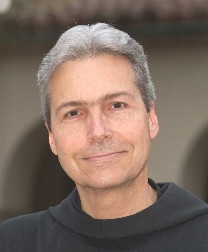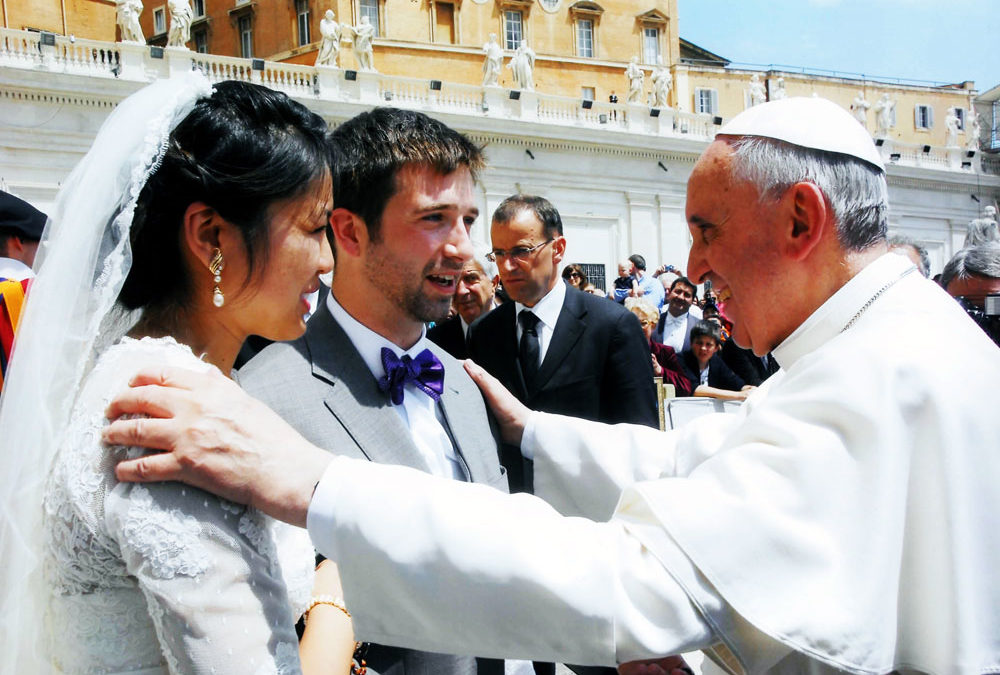“Work of the Enemy” said Gandalf.
“Such deeds he loves: friend at war with friend; loyalty divided in confusion of the hearts.”
J.R.R. Tolkien, The Return of the King, ch. 7, “The Pyre of Denethor
The title of this article will doubtless surprise many. Pope Francis’ Apostolic Exhortation Amoris Laetitia has arguably evoked more – and louder – controversy than any papal teaching since Humanae Vitae. Certainly the spectrum of discussion and critique of Amoris Laetitia among Catholics has been as broad-ranging and vituperative as anything in recent memory. Defenders and critics alike have become increasingly strident and insistent on widely-differing interpretations of its more ambiguous chapters and footnotes. Cynical and dismissive condemnations of opponents abound on all sides of the debate in the Catholic blogosphere. And as the great Catholic philologist and Oxford professor J.R.R. Tolkien observed in the quotation above from The Lord of the Rings, the enemies of the Church, and especially her archenemy, are doubtless delighted at such a spectacle of Catholic disunity.
Hence this article. Many supporters of Natural Family Planning are not enthusiastic about Amoris Laetitia. They wonder whether it accurately represents traditional Catholic teaching concerning human sexuality, and they are concerned (rightly, as it turns out) that some theologians, priests and bishops may invoke it in defense of a permissive and duplicitous approach to moral questions concerning sexuality and fertility. But the misuse of Amoris Laetitia does not alter the fact that it is an officially-promulgated document of the Catholic teaching magisterium. Specifically it is an apostolic constitution, a papal document in which the Holy Father summarizes and applies the results of a synod, in this case two Synods on the Family that met in 2014 and 2015. It is a magisterial text that is here to stay; and instead of engaging in acrimonious debate, a more productive approach would be to learn how to constructively use Amoris Laetitia in defense of natural family planning.
1. Positive references in Amoris Laetitia to Natural Family Planning
Pope Francis has warmly recommended both natural family planning and the earlier magisterial documents that promote this practice. The opening sentences of Amoris Laetitia §222 encourage the ongoing development of a culture of life based on a rediscovery of the insights of Pope Paul VI’s Encyclical Humanae Vitae and of Pope Saint John Paul II’s Apostolic Exhortation, Familiaris Consortio:
The pastoral care of newly married couples must also involve encouraging them to be generous in bestowing life. “In accord with the personal and fully human character of conjugal love, family planning fittingly takes place as the result a consensual dialogue between the spouses, respect for times and consideration of the dignity of the partner. In this sense, the teaching of the Encyclical Humanae Vitae cf. 1014 and the Apostolic Exhortation Familiaris Consortio cf. 14; 2835 ought to be taken up anew, in order to counter a mentality that is often hostile to life…”
Both Natural Family Planning and the insights of Humanae Vitae are warmly recommended at the end of the same chapter §222:
Moreover, “the use of methods based on the ‘laws of nature and the incidence of fertility’ Humanae Vitae, 11 are to be promoted, since ‘these methods respect the bodies of the spouses, encourage tenderness between them and favor the education of an authentic freedom’” Catechism of the Catholic Church, §2370.
2. The importance of formal instruction (a teacher and classes) in Natural Family Planning
Not infrequently couples new to the practice of natural family planning report to their parish priest that a given method “doesn’t work for them.” In many cases this is because they have attempted to research and practice methods without any formal instruction. Often they have only partially understood descriptions of natural family planning in books or articles on the internet. Clinical research has demonstrated the importance of taking classes where participants are free to ask questions and raise concerns; and where, most important of all, they develop an ongoing relationship with a qualified and experienced teacher.
A recurrent theme in Amoris Laetitia, and a constant emphasis throughout Pope Francis’ papacy is the practice of “accompaniment”. No one should have to wander through life alone, in isolation from others. Just as Christ the Good Shepherd is present to us throughout our lives, so all Christians are called to “accompany” those in any kind of need: that is, to walk with, assist, and empathize with their fellow human beings. Amoris Laetitia §216-243 emphasizes the importance of spiritual and emotional accompaniment during all the stages of married life and specifically recommends §230 that more experienced married couples make themselves available to advise and encourage younger couples. In the context of natural family planning this should take the form of an experienced teacher who “accompanies” newly-married couples in their journey of discovering the possibility of a natural and holistic approach to intimacy and fertility that is in harmony with the tradition of the Church.
3. The Principle of gradualness
Anyone who has “accompanied” couples who are in the first stages of learning natural family planning knows the importance of patience and perseverance. More specifically, both teachers and learners must appreciate the moral courage required to turn away from the pervasive contraceptive mindset of our culture towards an approach that respects the physical, psychological, and spiritual integrity of both the human person and the marital relationship. It takes time, sometimes a great deal of time, for couples to trust that the method they are learning is scientifically based and reliable, and that they can rely on the physical signs and symptoms they learn to interpret. Recently, Catholic moral theology has articulated the “principle of gradualness” described in Amoris Laetitia §295:
[…] Saint John Paul II proposed the so-called “law of gradualness” in the knowledge that the human being “knows, loves and accomplishes moral good by different stages of growth”. This is not a “gradualness of law” but rather a gradualness in the prudential exercise of free acts on the part of subjects who are not in a position to understand, appreciate, or fully carry out the objective demands of the law. For the law is itself a gift of God which points out the way, a gift for everyone without exception; it can be followed with the help of grace, even though each human being “advances gradually with the progressive integration of the gifts of God and the demands of God’s definitive and absolute love in his or her entire personal and social life.”
The principle or law of gradualness is an encouragement to practice the virtues of patience and perseverance. Couples not infrequently stumble and revert temporarily to contraceptive practices that the prevailing culture and their previous experience persuade them to trust and prefer. It takes time, encouragement, and “accompaniment” by a qualified teacher for newcomers to the practice of natural family practice to fully embrace its life-giving potential.
Conclusion
The average Catholic couple seeking information on Natural Family Planning will probably not be overly concerned with Catholic “culture wars” or the controversy surrounding Amoris Laetitia. Instead what they will certainly need are reassurance that what they are undertaking has the complete support and encouragement of the Church, as well as competent instruction and compassionate, patient accompaniment by their teachers and pastors. For those who care to look for them, encouragement in all these matters may be found in the pages of Pope Francis’ Apostolic Exhortation Amoris Laetitia.

Fr. Luke Dysinger, OSB, MD, DPhil, was a featured presenter at both the Pre-Conference Clergy Day, and the main HV50 event, Faithful to God’s Design. View those videos HERE. Fr. Luke studied religion and medicine at the University of Southern California, and received his D. Phil in Theology from Oxford University. Prior to joining the monastic community at Saint Andrew’s Abbey in 1980, he trained as a physician, and is board certified in family practice and a fellow of the American Academy of Family Practice, serving as member and former-chair of the bioethics committee at Antelope Valley Medical Center, where he is on the medical staff. He teaches marriage and human sexuality, bioethics, patristics, and the history of Christian spirituality at Saint John’s Seminary, in Camarillo, California.

